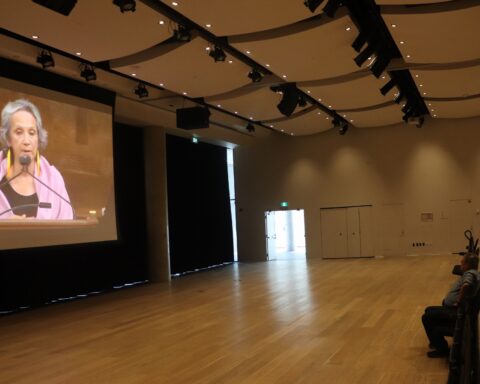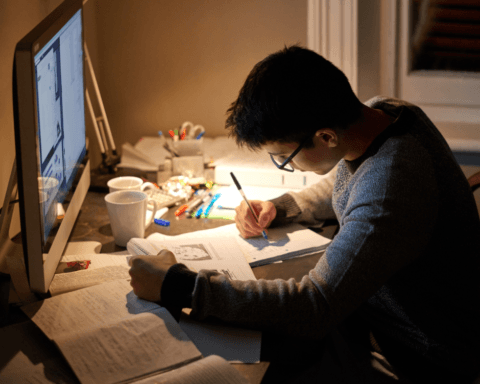CNN recently reported that college applications from Chinese foreign students to the US sounded exactly the same.
In fact, one admission officer read a phrase in one of the applications that sent up red flags: “Insert girl’s name here.” The number of Chinese students in the United States has reached 235,597 as of 2013 but admissions officers said that “as many as one in 10 applications to U.S. colleges by Chinese students may include fraudulent material, including phony essays and high-school transcripts.”
Cheating is a worldwide phenomenon, and is a challenge even here in the United States, but in Asia it has reached near-crisis levels. Last year, riots broke out when teachers at a school in Zhongxiang, in China’s Hubei province tried to stop students from cheating. Parents fought police when they found out their children were prevented from cheating. It’s only fair that their children should cheat, they reasoned, since everyone else was cheating as well.
When you take into account that two out of three Asians in America were born overseas, it’s no wonder that even the most diligent Asian students feel more comfortable in science classes than in English literature, where raising your hand to offer opinions is not only encouraged but counts toward the final grade.
Can Asians think?
To do well on tests is the end point, not necessarily to learn. So much so that some years ago Kishore Mahbubani, a career diplomat from Singapore, posed this question in the title of his book,”Can Asians Think? Understanding the Divide Between East and West.” A rhetorical title surely since Asia, from Confucius down to dissident artist Ai Wei Wei (the creator of the Bird’s Nest in Beijing) to writer Haruki Murakami, abounds with philosophers, artists and thinkers. But Mahbubani does have a point: The majority of the population tends to fall into conformity and while a few are winning prestigious literary and artistic awards, the majority measures success via material gains and it begins with doing well on tests, ethical considerations be damned.
Is this a uniquely Asian problem? Intellectual laziness is a major issue here in the United States too, and students buy homework online to avoid thinking the way they download music from iTunes. But America still values those who think outside the box, originality. We immortalized Steve Jobs for his inventions. We mourn comedian and actor Robin Williams’ passing for his unique, brilliant, and fierce brand of humor. Williams invents words without thinking, jokes fall out of his lips unrehearsed and we all roar in laughter, awed by his inventiveness. The inventor, the loudmouth, the class clown, the individual with a vision, the maverick – these are encouraged still in America.
I learned to say “I disagree” to my father in English when I first came here at age 11 from Vietnam at the family table. In Vietnamese, it would have sounded harsh and unfilial (unbecoming of a filial son), and unthinkable. But the “I” fell off my tongue much easier in English. It allowed me to separate myself from the clan, the collective. It allowed me to think for myself. America encourages rebellion against the collective: follow your dreams.
Alas, back in Asia the ego is still by and large suppressed. The self exists in the context of families and clans. It is submerged in the service of shared values and ritualized language. A student raising his hand to disagree with a teacher would make a rare sight, indeed, in Vietnam, and may in fact be seen as a direct challenge to authorities. You are measured by how well you do on tests, end of point.
Plagiarism
A professor friend of mine teaches Asian American studies at a college here in the Bay Area. Every semester she catches her students cheating, mostly in the form of plagiarism. “I said to the class, ‘three of you plagiarized,’” she once told me. “’But I’ll be nice for once. Just rewrite and slide the new midterm essay under my office and I won’t flunk you.’” Three days later, she found 11 new essays under her door upon the deadline. “A lot of them are foreign students or immigrant kids, and they are not confident with their own voice.”
The inventor, the loudmouth, the class clown, the individual with a vision, the maverick – these are encouraged still in America.
When you take into account that two out of three Asians in America were born overseas, it’s no wonder that even the most diligent Asian students feel more comfortable in science classes than in English literature, where raising your hand to offer opinions is not only encouraged but counts toward the final grade.
Asia has become an economic powerhouse in the 21st century. China’s economy will soon surpass those of the United States and Europe. Friends of mine in East Asia are quite proud of this fact. But to them, I often ask, “What does all that mean?” Materialism, after all, is not an ideology, it’s selfishness writ large. To create a viable civilization it starts with clear moral values regarding pedagogy, a shared sense of purpose, and a critical mass of thinkers and inventors. That is, it usually takes a lot of thinking and imagining and re-inventing for a civilization to have its sphere of influence emanating beyond its borders.
And my suspicion is that it usually starts in the classroom.
Andrew Lam is an editor with New America Media and author of the “Perfume Dreams: Reflections on the Vietnamese Diaspora,” and “East Eats West: Writing in Two Hemispheres.” His latest book is “Birds of Paradise Lost,” a short story collection, was published in 2013 and won a Pen/Josephine Miles Literary Award in 2014.
Republished with permission.




